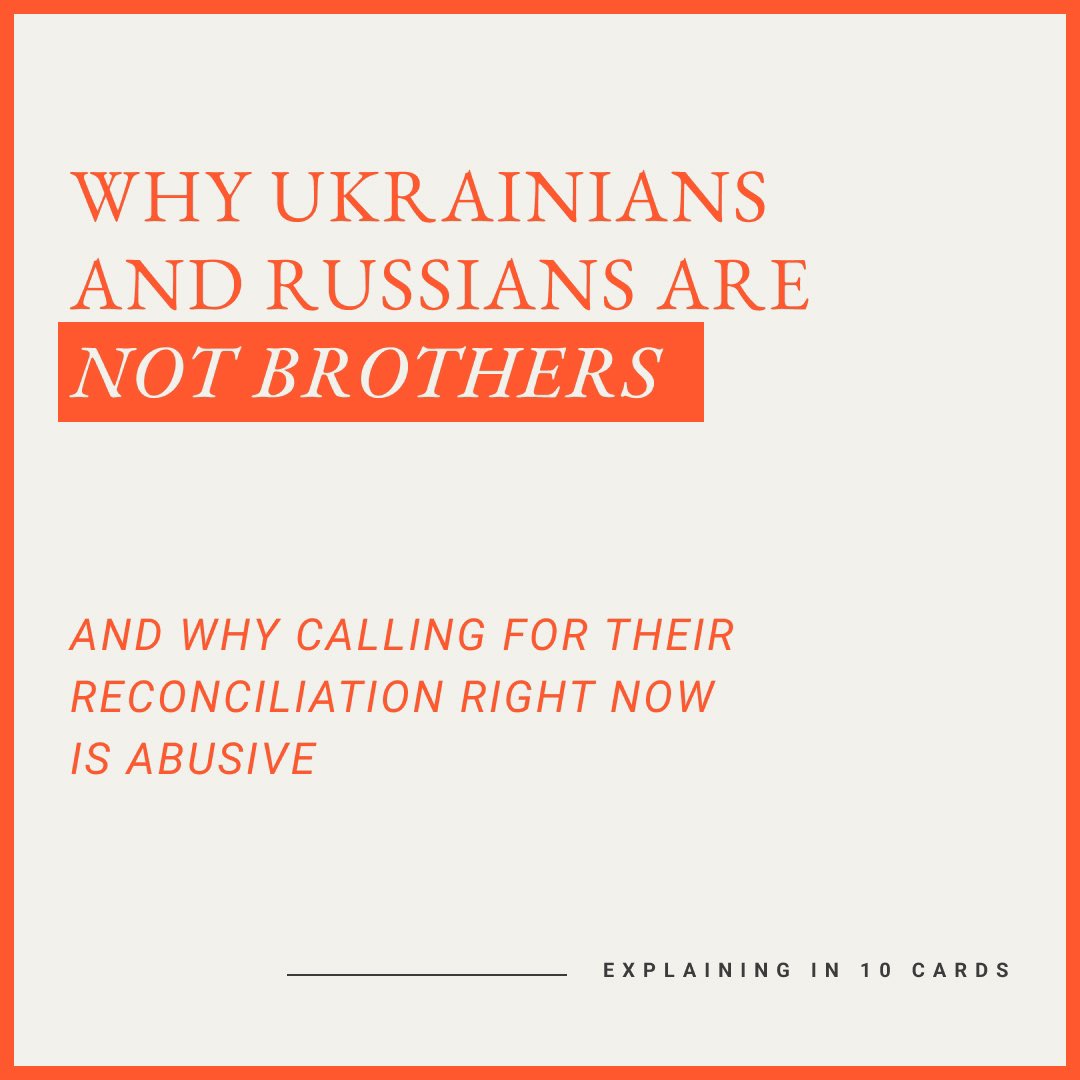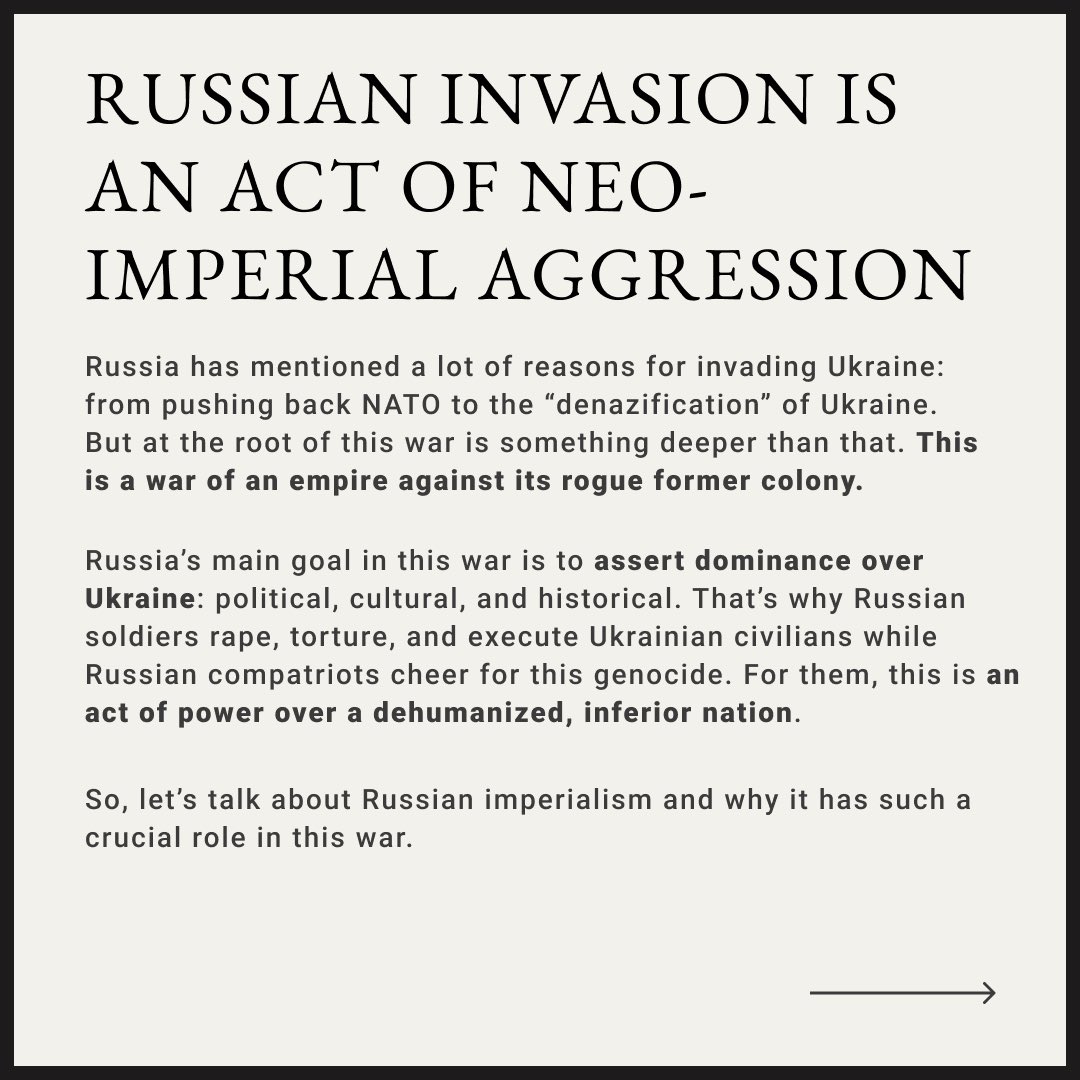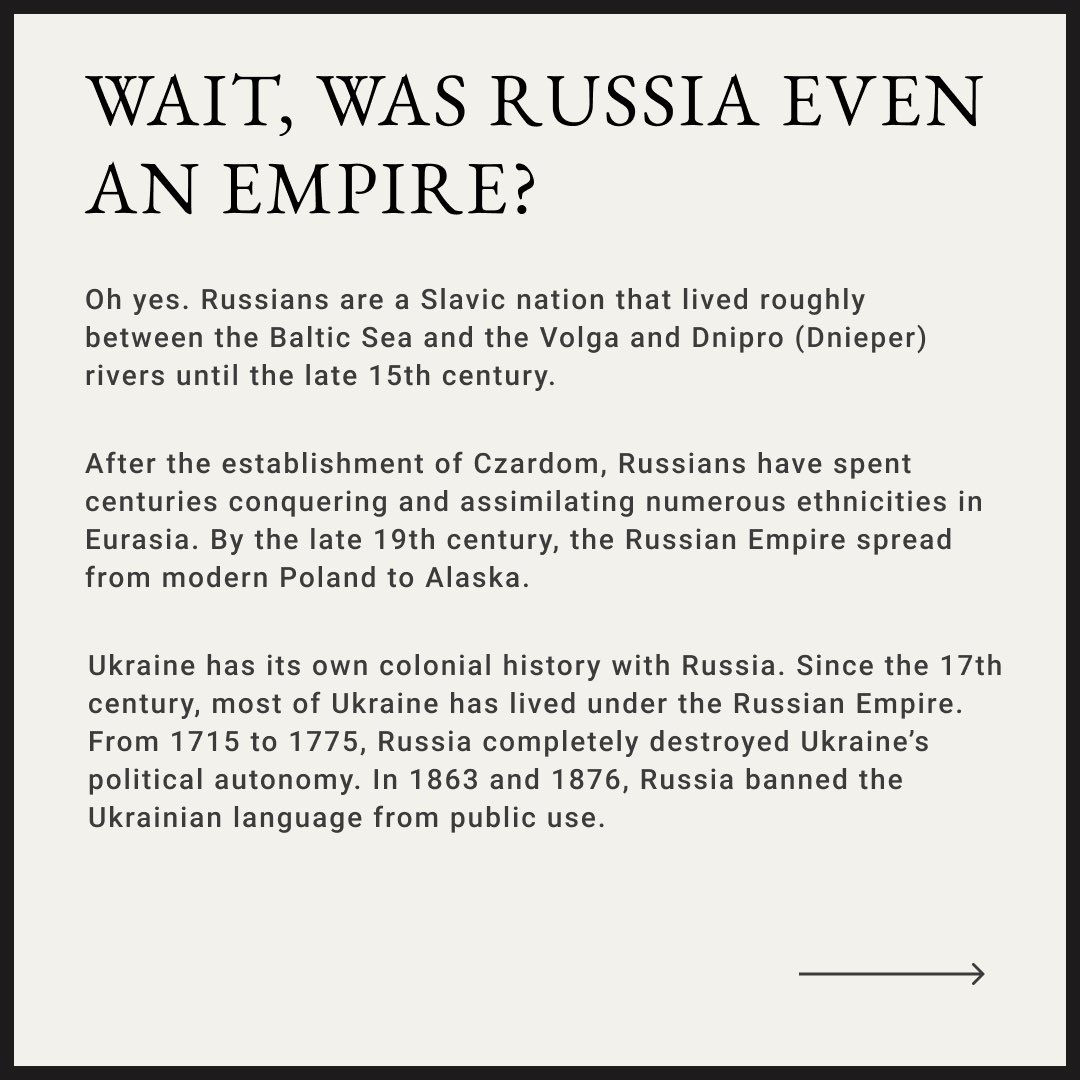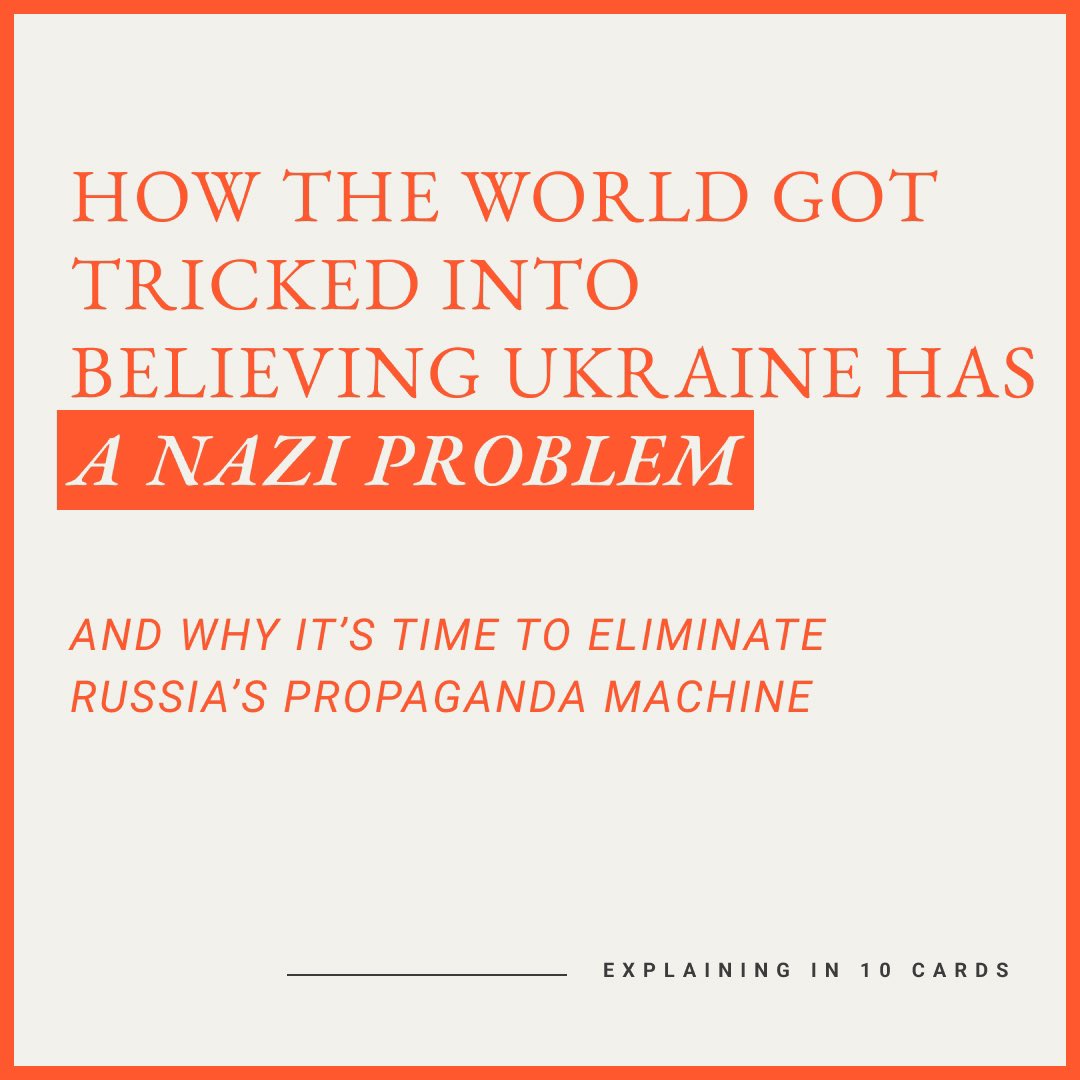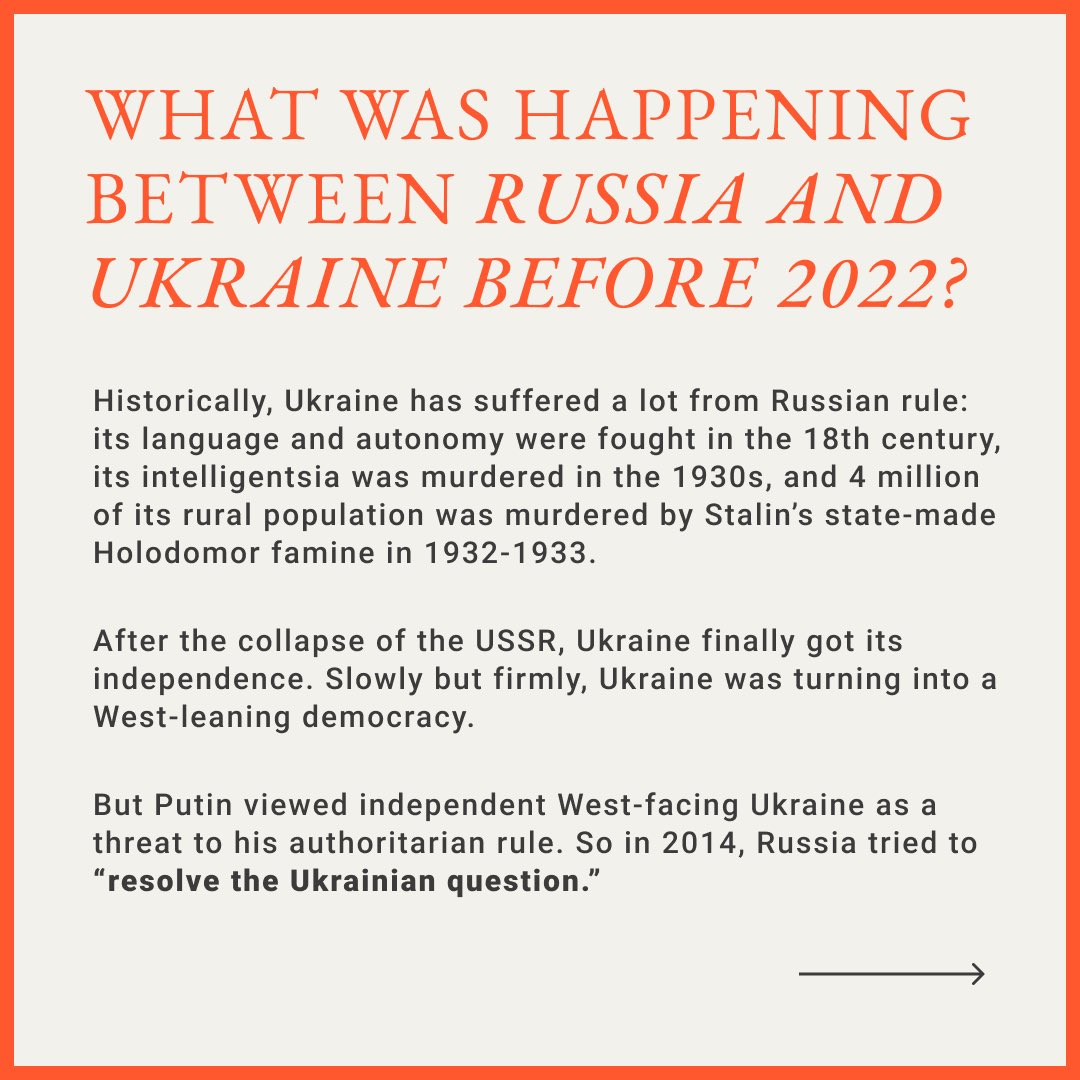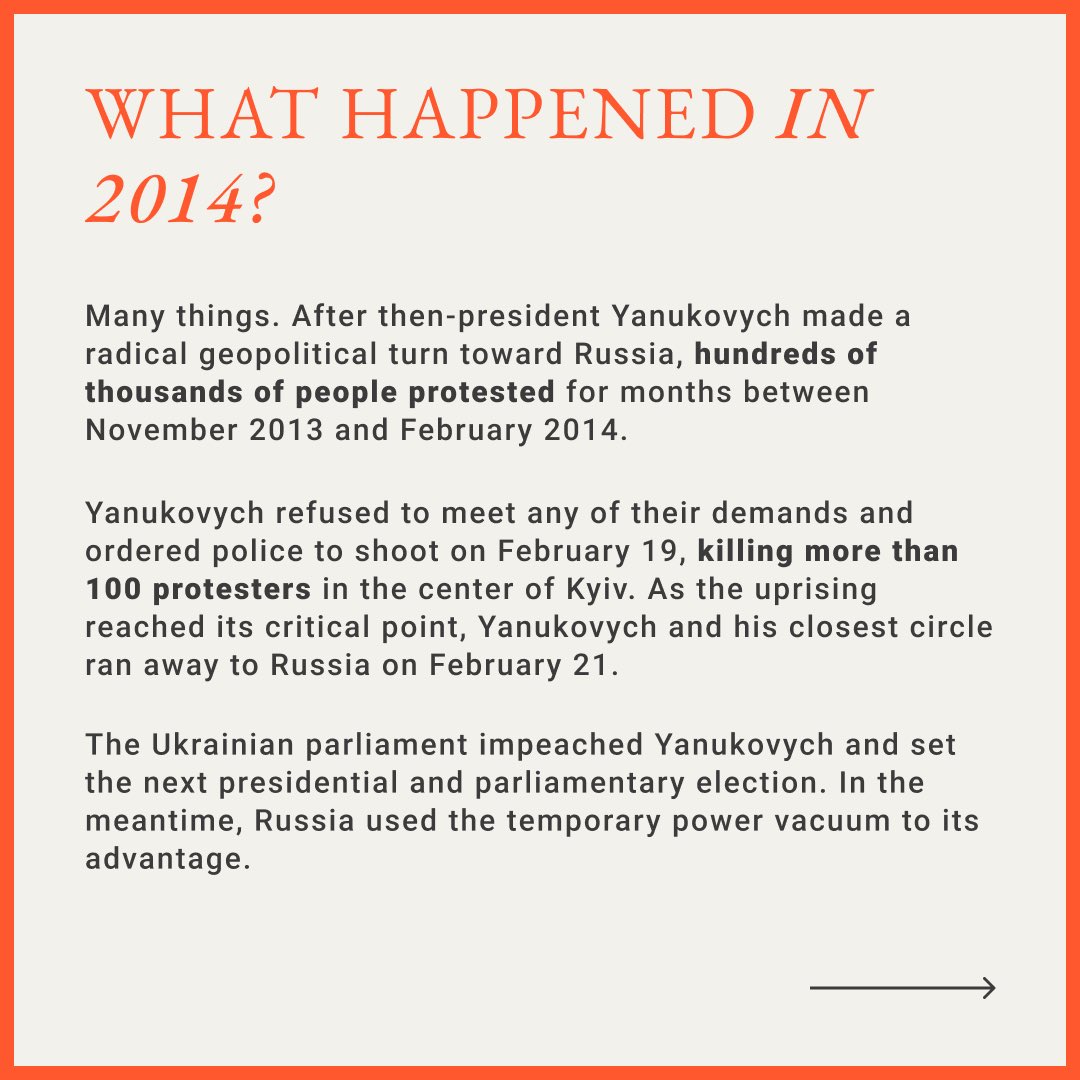
The language context of Ukraine can be a tricky topic for any outsider. In this long and personal thread, I’ll illustrate the relationship between 🇺🇦 and 🇷🇺 languages in Ukraine using my family’s history. I’m a bilingual Ukrainian raised in a Russian-speaking family in Kyiv. 
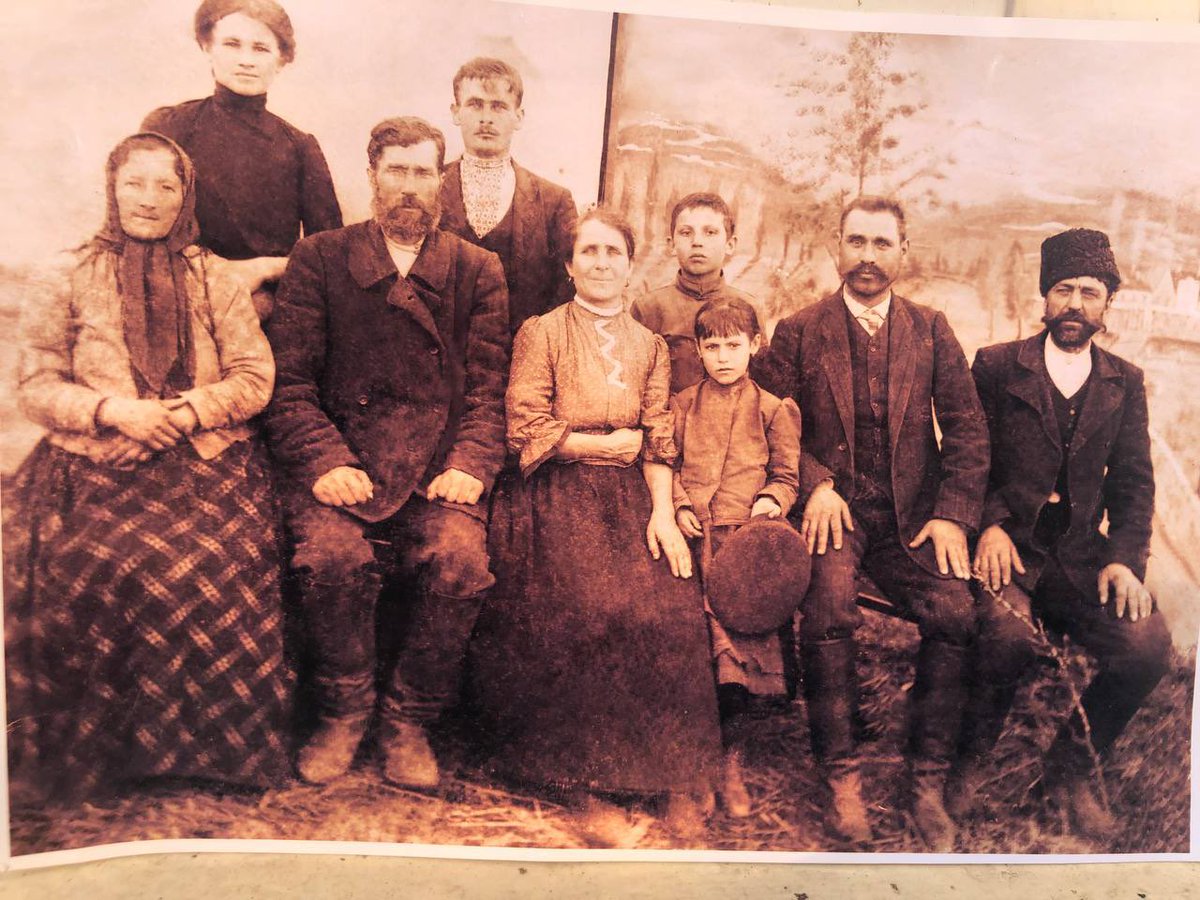
The photo in the first tweet is from my family archive. It’s my great-great grandfather’s (second from the right) family photo taken in 1913. They were rural farmers living in Kyiv oblast. (I wish I could grow a mustache like that but I guess some genes haven’t survived)
I’ll start with some basic context. Russian and Ukrainian are separate Slavic languages that are partly mutually intelligible. They differ from one another more than many people think. But that’s a whole different story.
Before the Soviet era, Ukraine’s linguistic map looked somewhat like this: 70-90% of rural population across most of Ukraine were Ukrainian speakers. Ethnically the majority of the population was Ukrainian as well, although Ukraine was always a great mix of cultures.
At various points in modern history, parts of Ukraine were ruled by Russia, Poland, and even Turkey. That’s why the pre-Soviet urban population was largely non-Ukrainian and mostly spoke Russian, Polish, and Hebrew. Cities weren’t huge though: the economy was largely agrarian.
Now to my family. My father’s and mother’s families both go back to the Kyiv region. This always felt extremely boring to me since practically all people in Kyiv have their roots scattered across the entire country. Not me though.
All of my ancestors were Ukrainian-speaking rural farmers before the Soviets came to power. The Ukrainian language flourished back then despite Russia’s continuous attempts to cut it from books, schools, and art.
Russia limited the use of 🇺🇦 language since the early 18th century and gradually came to the Ems order in 1876. At that point, Ukrainian was banned from print, education, art, music, and public use. Even importing Ukrainian books (from Poland-ruled West Ukraine) was now illegal.
But the only thing that this colonial Russification achieved was the creation of Surzhyk, a diverse and chaotic mix of 🇺🇦 and 🇷🇺 that emerged because education and state communication were exclusively Russian. I bet my ancestors used some form of Surzhyk in their daily lives.
Surzhyk is a set of oral dialects: it has no written rules and it varies greatly depending on the region. It reflects centuries of deliberate forced Russification and different regions’ levels of exposure to Russian influence.
But besides Surzhyk, Russian imperial project hardly Russified the Ukrainian rural population. That changed when another, more nuanced form of colonial oppression came: the Soviet era. What Russia couldn’t achieve in centuries, the Soviets did to Ukraine in decades.
My great grandfather Stepan was a teenager when collectivization began in 1929. His family had a small farm, so they had to run away to save their lives and not be sent to Siberia. That’s how Stepan – a Ukrainian village boy – came to Kyiv on foot.
Stepan worked at the stables of a cab service owned by a Jewish man. After a few other simple low-profile jobs, WWII began. He was a POW and almost died of a battle wound, but he also met his future wife during war. They were given land on the outskirts of Kyiv in 1945.
My grandfather Vova was born in 1945 and still grew up in a Ukrainian-speaking family. During his time in school, college, and army he switched to Russian and developed social bonds primarily in Russian. That was the result of the Soviet way of Russification.
After WWII, USSR pushed this idea of a “great Russian nation” where Russian was the “victorious” and most prestigious nationality. Schools and universities switched to Russian-only. Other cultures were deemed “bourgeois nationalism.” The shift didn’t happen overnight, of course.
The ground for the shift was laid even before WWII with the Executed Renaissance of the 1930s. Hundreds of brightest Ukrainian intellectuals, writers, and artists were executed and sent to Siberia. Thousands more Ukrainian educators were fired and detained.
Besides that, the state-managed Holodomor genocide of 1932-1933 starved around 4 million Ukrainians to death. Add to this 8-10 million Ukrainians who died during WWII and you get the grim picture of how oppressed, exterminated, and decapitated Ukrainian identity was at the time.
So after 1945, the Russian hegemony was cemented in public life. To get good grades, build a career, and just be seen as a “cultured” person, you had to learn and speak Russian everywhere. It’s a classic cultural assimilation scheme and it was happening under Soviet rule.
The thing is, the Soviets never really recognized the colonial legacy of Russia. Russian imperialism got ingrained into the fabric of Soviet life, and many Soviet institutions were continuing the chauvinistic, xenophobic, Russia-centered policies of the past.
My grandfather Vova met Vera, a village girl who came to study in Kyiv and also switched from Ukrainian to Russian for social and career reasons. They had twins in 1970, one of whom was my father Oleksandr (Sasha). The two brothers were now raised in a Russian-speaking family.
I once asked my grandma why they decided to speak Russian in their family since both Vova and her were Ukrainian-speaking initially. She said it wasn’t a conscious decision – it was something that just happened.
Grandma once recalled how in the late 1960s she used to walk to work past this corner in Khreshchatyk street (central Kyiv). It was the block where the remaining old intelligentsia lived, and it was the only place in Kyiv where she’d hear spoken Ukrainian.
So that’s how they switched to Russian in their family. Because Ukrainian was useless everywhere in life. Because Ukrainian used to draw suspicion and non-conformity – something you fear the most while living in a totalitarian state.
Oh, Stepan was still around – still speaking Ukrainian and suffering PTSD and paranoia (they didn’t know these words back then). For urban kids at the time, Ukrainian was the language of silly village people, and old Stepan completely fit into that image.
By pure chance, my father went to one of the few Ukrainian schools in Kyiv at the time, so he was perfectly fluent in both Ukrainian and Russian by the time he graduated. It was a rarity since most people in big cities lost their Ukrainian (or Surzhyk) traces by adulthood.
My mother Natalia had a different path. Her Surzhyk-speaking parents came to Kyiv from villages to study and work. So my mother grew up in a Surzhyk-speaking family and went to a Russian school. She only learned proper Ukrainian in her late 20s while helping me with homework.
Mom told me she and her sisters (she has two) learned early to switch to Russian whenever they went outside. They got extremely embarrassed every time their mother called them to come home from the playground. You see, other kids made fun of Surzhyk-speaking kids.
Obviously, many kids across Ukraine were speaking Surzhyk back then. I suspect a lot of kids who made fun of Surzhyk were secretly Surzhyk-speakers themselves. But that’s how colonialism works. You degrade colonies’ cultures and treat them as inferior, stupid, and dirty.
And that’s what was happening across all of the USSR in 1950-the 1980s. Ukraine was not unique in that sense. Kids of all backgrounds were ashamed of their origins and wanted to look, sound, and appear Russian enough. Russian was the language of prestige and success.
In fact, Russian was THE language. All other Soviet languages were silly, archaic, rural dialects. And that’s why when my mom and dad met back in 1989, they were both young Russian-speaking Kyivites. There’s a funny little story about that.
My father learned that my mother knew and spoke Surzhyk many months into their dating when he met her family and, to his shock, heard how they spoke in the family. He was cool about that but he told me once that this realization completely blew his mind at the time.
My parents were young, naive, and anti-Soviet when the USSR fell. Even with all the Russification and Soviet-led assimilation going on, many Ukrainians felt Russian imperialism on a deeper level. They knew they were second-class citizens and they wanted Ukraine to go it alone.
And in these wild and poor early years of Ukrainian independence, I was born. Now, although my parents were largely pro-Ukrainian and anti-Soviet, they didn’t switch to Ukrainian. We spoke Russian in family and lived close to Vova and Vera, with whom I also spoke in Russian.
Why? Well, in people’s minds, there was no connection between speaking Russian and being pro-Russian (or Russian). Russian was still THE norm. In big cities across Central and East Ukraine, speaking Russian was just an ordinary way of life, something that wasn’t questioned a lot.
I did hear a lot of Surzhyk every time we went to mom’s family. It felt funny and weird to me. That means one thing: even in the late 1990s and early 2000s, Russian was still the dominant urban language. Surzhyk was still a dirty dialect. I internalized this early on as a kid.
Now, of course, compared to the 1970s, Ukrainian did advance hugely when I was growing up. I went to a Ukrainian school, which was now a widespread norm. Cartoons, ads, and the rest of TV were partly Ukrainian and partly Russian. The return to Ukrainian was gradual but clear.
So, unlike my parents who grew up speaking Russian but had some elements of Ukrainian left in them, I was truly raised as a bilingual person. I could write and speak fluently in both languages. Still, the intimate, family language was Russian.
After the Orange Revolution of 2004, there was another shift. Suddenly, there was more widespread self-realization of Ukrainian identity. My family began to talk angrily about the fact that we all spoke Russian because we were historically oppressed by the Russians.
The need to defend the Ukrainian language from Russian influence also became clear at that time. Russian pop culture was still everywhere in Ukraine. Russians had more money and influence, and many Ukrainians were still hooked on Russia-dominated culture since the Soviet days.
Language was getting weaponized by Russian and pro-Russian propaganda. Ukraine’s decolonization attempts – although not always mindfully executed – were portrayed as anti-Russian. Russia amplified this talk about the discrimination of Russian speakers and made an issue out of it.
In reality, Ukraine remains largely bilingual and chill about language. Everybody understands Ukrainian and Russian fluently. Conversations in mixed Russian and Ukrainian happen all the time. Nobody makes political conclusions from the way you speak at a grocery or in a bank.
But Russia always took Ukraine’s decolonization attempts and pro-European aspirations personally. That’s partly why, after the Revolution of Dignity in 2014, Russia made its first strike by annexing Crimea and creating and maintaining the war in Donbas.
Ironically, after 2014, there came another huge revival of the Ukrainian language. People started switching to Ukrainian, and pop culture was actively separating itself from Russia. Ukraine felt Russian imperialism once again and had enough of it.
Although we are Russian speakers, my family and I have always been pro-Ukrainian. We were at Maidan in 2004 and 2014. Over time my family developed more and more resentment and disrespect toward Russia for everything it’s done to Ukraine and our ancestors.
A lot of families have gone through a similar rediscovery of their Ukrainian identity in the last decades. Mine as well. For the first time in almost 100 years, my family recently started to speak clear Ukrainian at home again.
This isn’t a complete shift to Ukrainian-only. More like an attempt to consciously bring Ukrainian into our family. Because now, we know how and why our families were Russified. Now we see the need to decolonize our history and culture through conscious choices.
I guess that's the story I wanted to tell. Two last thoughts here: 1) There are millions of families like mine who have gone through famines, wars, and forced Russification. The fact that they’re Russian-speaking has nothing to do with their ethnicity or political affiliation.
2) Ukraine is a mixture of languages and dialects, but it has all the right to decolonize its Ukrainian identity and separate itself from Russia. Screams of Russian speakers’ discrimination have always been complete bullshit. I can say that as a lifelong native Russian speaker.
Thanks for sticking with me during this (very) long and intimate thread.
I’ll end by calling to support Ukraine in its fight for existence. Learn more about the political and cultural context of this war with our Ukraine Explainers project: uaexplainers.com
End of 🧵
I’ll end by calling to support Ukraine in its fight for existence. Learn more about the political and cultural context of this war with our Ukraine Explainers project: uaexplainers.com
End of 🧵
• • •
Missing some Tweet in this thread? You can try to
force a refresh





